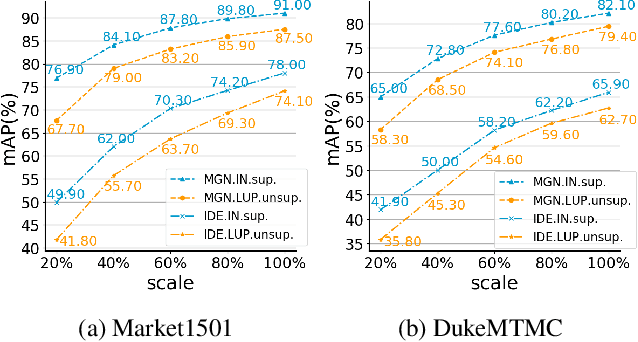Unsupervised Pre-training for Person Re-identification
Paper and Code
Dec 07, 2020



In this paper, we present a large scale unlabeled person re-identification (Re-ID) dataset "LUPerson" and make the first attempt of performing unsupervised pre-training for improving the generalization ability of the learned person Re-ID feature representation. This is to address the problem that all existing person Re-ID datasets are all of limited scale due to the costly effort required for data annotation. Previous research tries to leverage models pre-trained on ImageNet to mitigate the shortage of person Re-ID data but suffers from the large domain gap between ImageNet and person Re-ID data. LUPerson is an unlabeled dataset of 4M images of over 200K identities, which is 30X larger than the largest existing Re-ID dataset. It also covers a much diverse range of capturing environments (eg, camera settings, scenes, etc.). Based on this dataset, we systematically study the key factors for learning Re-ID features from two perspectives: data augmentation and contrastive loss. Unsupervised pre-training performed on this large-scale dataset effectively leads to a generic Re-ID feature that can benefit all existing person Re-ID methods. Using our pre-trained model in some basic frameworks, our methods achieve state-of-the-art results without bells and whistles on four widely used Re-ID datasets: CUHK03, Market1501, DukeMTMC, and MSMT17. Our results also show that the performance improvement is more significant on small-scale target datasets or under few-shot setting.
 Add to Chrome
Add to Chrome Add to Firefox
Add to Firefox Add to Edge
Add to Edge